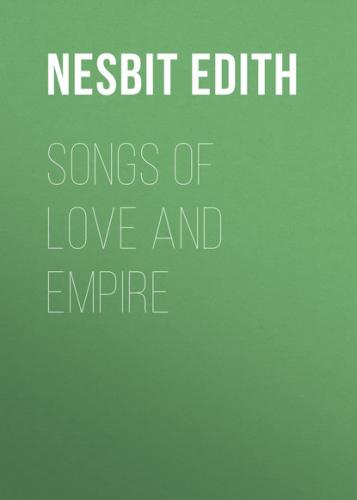Much love, much sorrow, dead desires, lost dreams,
A great life lived out greatly; hidden tears,
And smiles for daily wear; strong plans and schemes,
And mighty hopes and fears;
War in the South and murder in the East,
And England’s heart-throbs echoed by your heart
When loss, and labour, and sorrow were her part,
Or when Fate bade her to some flower-crowned feast.
Red battle-fields whereon your soldiers died,
Green pastoral fields saved by the blood of these,
Duty that bade mere sorrow stand aside,
And love transforming anguish into ease;
Long longing satisfied,
Great secrets wrenched from Nature’s grudging breast,
The fruit of knowledge plucked for all to eat, —
These have you known, Life’s circle is complete,
And, knowing these, you know what is Life’s best:
The dear small secrets of our common life,
The English woods and hills, the English home,
The common joys and griefs of Mother and wife,
Joy coming, going – griefs that go and come,
Soul’s peace amid world’s strife;
Hours when the Queen’s cares leave the woman free;
Dear friendships, where the friend forgets the Queen
And stoops to wear a dearer, homelier mien,
And be more loved than mere Queens rise to be.
And, in your hour of triumph, when you shine
The centre of our triumph’s blazing star,
And, gazing down your long life’s lustrous line,
Behold how great your life-long glories are,
Yet, in your heart’s veiled shrine,
No splendour of all splendours that have been
Will brim your eyes with tremulous thanksgivings,
But little memories of little things —
The treasures of the woman, not the Queen.
Yet, Queen, because the love of you hath wound
A golden girdle all about the earth,
Because your name is as a trumpet sound
To call toward you men of English birth
From the world’s outmost bound,
Because old kinsmen, long estranged from home,
Come, with old foes, to greet you, friend and kin,
With kindly eyes behold your guests come in,
See from afar the long procession come!
No Emperor in Rome’s Imperial days
Knew ever such a triumph day as this,
Though captive kings bore chains along his ways,
Though tribute from the furthest isles was his,
With pageant and with praise.
For you – free kings and free republics grace
Your triumph, and across the conquered waves
Come gifts from friends, not tributes wrung from slaves,
And praise kneels, clothed in love, before your face.
Ring, bells! flags, fly! and let the great crowd roar
Its ecstasy! Let the hid heart in prayer
Lift up your name! God bless you evermore,
Lady, who have the noblest crown to wear
That ever monarch wore.
For, ’mid this day’s triumphal voluntaries,
Your name shines like the splendour of the sun,
Because your name with England’s name is one,
As Hers, thank God! is one with Liberty’s.
TRAFALGAR DAY
Laurels, bring laurels, sheaves on sheaves,
Till England’s boughs are bare of leaves!
Soon comes the flower more rare, more dear
Than any laurel this year weaves —
The Aloe of the hundredth year
Since from the smoke of Trafalgar
He passed to where the heroes are,
Nelson, who passed and yet is here,
Whose dust is fire beneath our feet,
Whose memory mans our fleet.
Laurels, bring laurels, since they hold
His England’s tears in each green fold,
His England’s joy, his England’s pride,
His England’s glories manifold.
Yet what was Victory since he died?
And what was Death since he lives yet,
Above a Nation’s worship set,
Above her heroes glorified? —
Nelson, who made our flag a star
To lead where Victories are!
A SONG OF TRAFALGAR
Like an angry sun, like a splendid star,
War gleams down the long years’ track;
They strain at the leash, the dogs of war,
And who shall hold them back?
“Let loose the pack: we are English bred,
We will meet them full and fair
With the flag of England over our head,
And his hand to keep it there!”
So spake our fathers. Our flag, unfurled,
Blew brave to the north and south;
An iron answer we gave the world,
For we spoke by the cannon’s mouth.
But he who taught us the word to say
Grew dumb as his Victory sang,
And England mourned on her triumph day,
And wept while her joy-bells rang.
Long hour by hour, and long day by day,
The swift years crept apace,
The patient, the coral-insect way,
To cover the dear dead face.
O foolish rabble of envious years,
Who wist not the dead must rise,
His name is music still in our ears,
His face a light to our eyes!
Bring hither your laurels, the fading sign
Of a deathless love and pride;
These cling more close than the laurels twine,
They are strong as the world is wide:
At the feet of Virtue in Valour clad
Shall glory and love be laid,
While Glory sings to an English lad,
Or Love to an English maid.
Wherever
